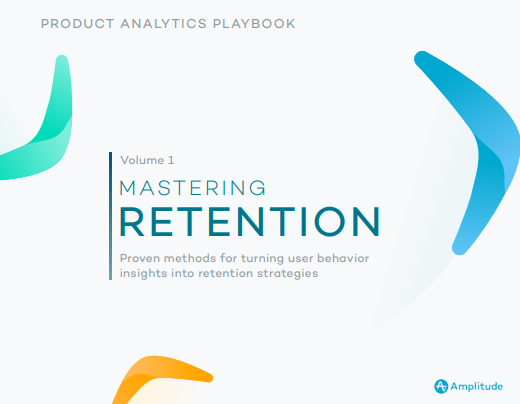Why you should invest in your CRM system
A unified and better integrated service can boost efficiency, digital transformation and customer experience

Digital transformation may be different for every organization but one thing remains true for all – it’s not a destination, it’s a mindset.
In many ways, digital transformation is a never-ending journey that allows your business to grow and almost future-proof itself. It isn’t just about taking legacy infrastructure and making it digital or cloud based – it also involves the ongoing process of upgrading any modern business systems.
The case for expanding your CRM
A customer relationship management (CRM) system is a great example of this. As a sales platform, it is a central part of the business likely used by most of your customer-facing employees, and its capabilities need to expand in line with your business needs. At their most basic level, CRM systems are simply a way to keep track of all the prospects and customers your business interacts with, along with their status as a lead and what communications you’ve had with them. This usually includes details about the company or individual in question such as their location, contact information and purchase history, but can also be expanded with further data such as the primary sales contact within your business. Dedicated CRM platforms also offer a host of additional features beyond this, including personalization tools, data analytics and marketing automation.
No matter the size of the organization, it's vital to choose a CRM system that can scale as fast as your business does. Now, scalability isn’t merely a buzzword of the tech industry – in simple terms, it refers to an application's ability to adapt and grow in line with the needs of the business. And regardless of whether you’re in charge of a 50-person startup or a Fortune 500 company, the CRM system you use needs to offer the same functionalities for each individual.
The main issue here, however, is that there is a software solution for virtually everything these days and if businesses are not shrewd in this market they can end up with a bloated subscription list. Why, for example, should you have applications for different HR processes when you can have one single solution for all? Save money, avoid employee confusion and reduce the need for multiple login credentials – it can all be achieved by taking the time to assess the options properly.
The mindset to scale
As your company scales over time, your CRM can start to become a bottleneck that can stifle your growth. A larger customer base means more records to keep up-to-date, but in addition to that, you’ll ideally want to add more fields and data points to each customer’s record, allowing you to better track the relationship and sort between them. All of this multiplies the time and effort it takes to ensure the system is adequately maintained, which could be better spent on delivering meaningful value to the organization.
Just as you should increase your workforce as demand grows, you also need to upgrade the capacity and capabilities of your sales and marketing tools as well, to ensure that your staff have everything they need in order to perform their jobs effectively, and that their time isn’t being taken up by unnecessary admin tasks. A fully featured platform such as Zoho CRM includes a range of helpful additions designed to remove time-consuming manual processes, such as invoicing tools for faster payments, more in-depth lead categorization options for improved filtering, and granular user management to enhance KPI tracking
CRM systems allow businesses to assign specific customers to specific sales representatives, increasing organizational efficiency by giving team members faster and easier access to the relevant information they need to turn prospects into customers – and because their access to the underlying data is limited, there’s less risk of an employee plunging your business into chaos by changing the wrong record or accidentally deleting everything.
Automation and integration
Centralizing all of this data also opens up more opportunities for intelligent automation to help speed up sales pipelines and increase conversion rates. For example, Zoho CRM allows you to design custom workflows for your pipelines which can trigger tasks and actions based on specific criteria, such as sending an automated welcome email when a potential lead is marked as a closed sale. Incoming leads can also be automatically assigned to specific employees based on criteria such as the source or the company profile.
These capabilities form a strong foundation for delivering future digital transformation efforts within your business, and CRM systems such as Zoho support this through a range of integrations with other cloud-based platforms. Connecting enterprise productivity suites like Microsoft 365 and Google Workspace, or collaboration platforms such as Slack, allows you to sync email and calendar systems via your CRM system, import contacts as leads, easily create and send mail-merge documents and much more.
Leveraging the full benefit of a connected cloud ecosystem doesn’t just benefit your employees, though. It means a better experience for your customers too, thanks to faster response times to queries, a more personalized service based on data-driven insights, and less frustration with missing or incorrect information in their records – all of which results in greater satisfaction and an improved relationship with your business.
For businesses looking to invest in a more integrated and unified CRM system, Zoho CRM offers a range of flexible subscription-based plans to suit a variety of needs and budgets. For larger organizations that have plans to scale, there is the Enterprise tier, which includes features such as lead management, journey orchestration and multichannel marketing capabilities. For those companies that want to go a step further, the Ultimate tier allows even more room for your business to scale alongside enhanced features and data tools to help you get the most out of your customer relationships.
Learn more about implementing a unified CRM system with Zoho
Get the ITPro daily newsletter
Sign up today and you will receive a free copy of our Future Focus 2025 report - the leading guidance on AI, cybersecurity and other IT challenges as per 700+ senior executives
ITPro is a global business technology website providing the latest news, analysis, and business insight for IT decision-makers. Whether it's cyber security, cloud computing, IT infrastructure, or business strategy, we aim to equip leaders with the data they need to make informed IT investments.
For regular updates delivered to your inbox and social feeds, be sure to sign up to our daily newsletter and follow on us LinkedIn and Twitter.
-
 Third time lucky? Microsoft finally begins roll-out of controversial Recall feature
Third time lucky? Microsoft finally begins roll-out of controversial Recall featureNews The Windows Recall feature has been plagued by setbacks and backlash from security professionals
By Emma Woollacott Published
-
 The UK government wants quantum technology out of the lab and in the hands of enterprises
The UK government wants quantum technology out of the lab and in the hands of enterprisesNews The UK government has unveiled plans to invest £121 million in quantum computing projects in an effort to drive real-world applications and adoption rates.
By Emma Woollacott Published
-
 How to boost ROI from your CRM system
How to boost ROI from your CRM systemSponsored To deliver the results you want, you need to understand the full capabilities of your CRM system
By IT Pro Published
-
 Twilio tackles 'crucial' customer retention with trio of platform upgrades
Twilio tackles 'crucial' customer retention with trio of platform upgradesNews The company believes that retaining customers and maximising LTV is crucial in weathering the current macroeconomic headwinds
By Connor Jones Published
-
 Mastering retention
Mastering retentionWhitepaper Turning user behaviour insights into retention strategies
By ITPro Published
-
 How customer relationship management (CRM) can help your business
How customer relationship management (CRM) can help your businessIn-depth Are you still keeping customer details in a simple database or spreadsheet? There are several benefits of adopting an integrated CRM system
By Nik Rawlinson Published
-
 Microsoft announces Teams chat integration for Dynamics 365
Microsoft announces Teams chat integration for Dynamics 365News The integration offers features to streamline collaboration between teams while aiming to enable the faster closing of sales
By Daniel Todd Published
-
 1.2m businesses now eligible for UK gov's software discounts
1.2m businesses now eligible for UK gov's software discountsNews Help to Grow: Digital scheme offers up to £5,000 off selected CRM and e-commerce software
By Bobby Hellard Published
-
 Trust is vital to the future of customer experience
Trust is vital to the future of customer experienceSponsored As third-party cookies enter their twilight, more trustworthy systems are essential to deliver the kind of digital relationships companies and customers need
By IT Pro Published
-
 Microsoft launches Digital Contact Center Platform
Microsoft launches Digital Contact Center PlatformNews The tech giant's new service will pull together features from Dynamics, Teams and Nuance AI for customer service automation
By Bobby Hellard Published
